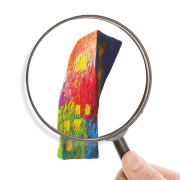Published 1988-05-01
Keywords
- nupcialidad,
- demografía histórica
How to Cite
-
Abstract624
-
PDF (Español)409
Downloads
Copyright (c) 1988 Estudios Demográficos y Urbanos

This work is licensed under a Creative Commons Attribution-NonCommercial-NoDerivatives 4.0 International License.
Metrics
Abstract
Without attempting to establish a direct causal relationship, this work studies the demographic implications which, at a nuptial, fertile or contraceptive level, are contained in the matrimonial ethics of the church in New Spain. They study the ecclesiastic recommendations and commands on what is now known as demographic variables: the age at first union, ethnic exogamy and endogamy, racial mixing, widowhood, the number of offspring and contraception.
The study is done through an analysis of documents from the church in New Spain, such as from provincial councils and some confessors particularly that of Friar Alonso de Molina.


